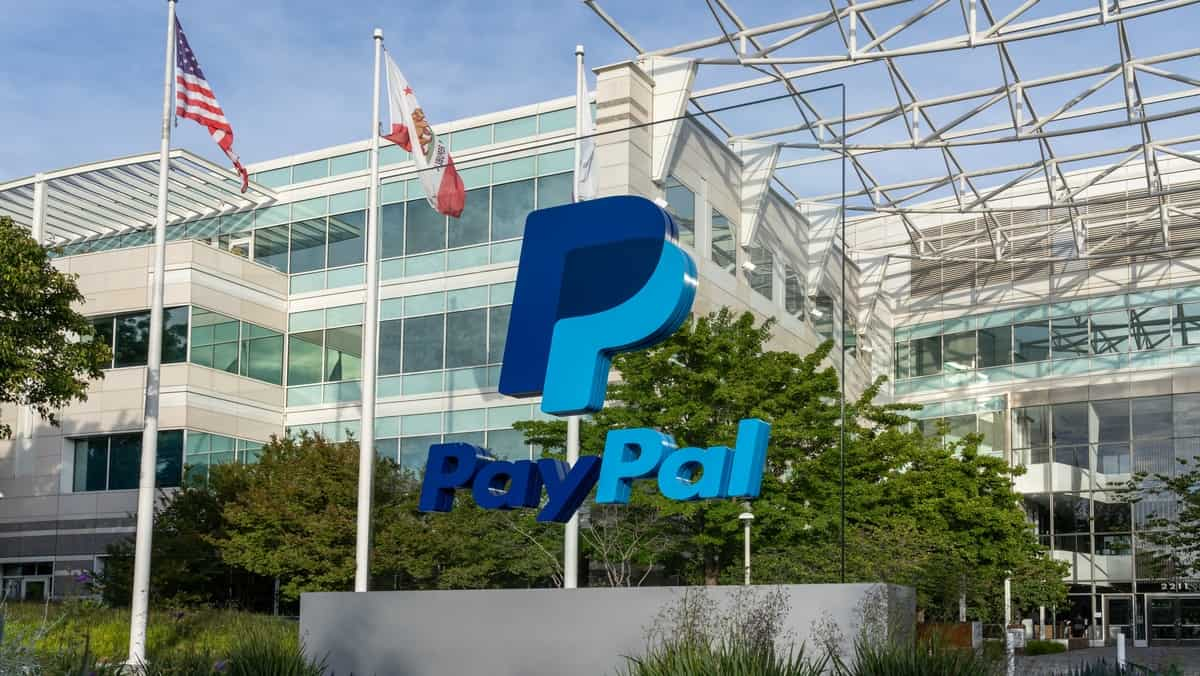
PayPal Stock Analysis: PayPal Holdings Inc. (NASDAQ: PYPL) has been a pivotal player in the digital payments landscape since its inception.
As a publicly traded company, PayPal (PYPL) stock price is influenced by various factors, including market trends, financial performance, and macroeconomic conditions. This analysis delves into the key drivers of PayPal's stock price and how they interact to shape investor sentiment.
Quarterly Earnings Reports
One of the most significant factors influencing PayPal's stock price is its quarterly earnings reports. Investors closely scrutinize revenue growth, earnings per share (EPS), and guidance for future quarters. A consistent history of exceeding analyst expectations can lead to stock price increases, while disappointing results may trigger sell-offs.
User Growth and Transaction Volumes
PayPal's user base and transaction volumes are critical metrics. Growth in active accounts and the total payment volume (TPV) reflects the company's ability to attract and retain customers. Increased transaction volumes often correlate with rising stock prices, as they indicate user engagement and market penetration.
Market Position
PayPal operates in a highly competitive environment with players such as Square (now Block, Inc.), Stripe, and traditional banks entering the digital payments space. Its ability to maintain a competitive edge through innovation, partnerships, and marketing significantly affects investor confidence and, consequently, stock performance.
New Market Entrants and Innovations
New technologies and services introduced by competitors can impact PayPal's market share. Innovations like cryptocurrency transactions and BNPL (Buy Now, Pay Later) services are crucial. PayPal's response to these trends can either bolster its stock price or lead to declines if it falls behind.
Economic Conditions
Economic indicators such as GDP growth, unemployment rates, and consumer spending directly influence consumer behavior and, by extension, PayPal's performance. In times of economic growth, consumers are more likely to spend, boosting transaction volumes. Conversely, economic downturns can lead to reduced consumer spending and lower transaction volumes, negatively impacting stock price.
Interest Rates and Inflation
Interest rates and inflation also play a significant role. Higher interest rates can dampen consumer spending and increase borrowing costs for businesses. Inflation can erode purchasing power, directly affecting transaction volumes. Investors monitor these economic signals closely when assessing PayPal's potential for growth.
Strategic Partnerships and Acquisitions
Collaborations
Strategic partnerships with other companies can enhance PayPal's offerings and expand its reach. Collaborations with e-commerce platforms, financial institutions, and technology firms can lead to increased transaction volumes and user growth, positively impacting stock prices.
Acquisitions
Acquisitions can also be a driver of stock price movement. By acquiring companies that enhance its technology or customer base, PayPal can accelerate growth. Successful integrations often result in higher stock valuations, while unsuccessful acquisitions can have the opposite effect.
Compliance and Legal Challenges
As a financial services provider, PayPal is subject to extensive regulatory scrutiny. Changes in regulations, compliance costs, or legal challenges can create uncertainty and affect investor confidence. Positive regulatory developments can boost stock prices, while negative news can lead to declines.
Global Market Regulations
PayPal operates internationally, meaning it must navigate various regulatory environments. Changes in foreign regulations can impact its operational capabilities and profitability, influencing stock performance. Investors must stay informed about regulatory changes in key markets.
Technological Advancements
Innovation and Product Development
PayPal’s ability to innovate and develop new products is crucial for maintaining a competitive edge. Investments in technology, such as artificial intelligence and machine learning, can enhance user experience and operational efficiency, driving growth and positively affecting stock prices.
Cybersecurity Measures
As a digital payments platform, cybersecurity is paramount. High-profile data breaches can damage PayPal’s reputation and lead to stock price declines. Conversely, robust security measures can build trust and encourage more users to engage with the platform.
Analyst Ratings and Recommendations
Analyst ratings and recommendations can significantly influence PayPal's stock price. Upgrades or downgrades from influential analysts can lead to increased buying or selling pressure. Investor sentiment often reacts strongly to analyst commentary, affecting stock movement.
Social Media and News Coverage
In today’s digital age, social media and news coverage can sway public perception and investor sentiment. Positive news stories or viral trends can lead to stock price increases, while negative coverage can result in declines. PayPal must manage its public image proactively to mitigate adverse effects.
Expansion into New Markets
PayPal’s potential for growth hinges on its ability to expand into new markets and demographics. Initiatives to penetrate underbanked regions or diversify services can enhance long-term revenue prospects, positively influencing stock price.
Adaptation to Market Trends
Staying ahead of trends such as digital currencies, contactless payments, and e-commerce growth is essential. PayPal’s adaptability in embracing these changes will determine its future success and impact on stock performance.
PayPal's stock price is driven by a complex interplay of factors, including financial performance, competitive dynamics, macroeconomic conditions, strategic partnerships, regulatory environments, technological advancements, market sentiment, and future growth potential. Investors must remain vigilant and informed about these drivers to navigate the stock's volatility effectively. Understanding these elements will enable better decision-making regarding investments in PayPal and the broader fintech landscape.
Risk Warning: this article represents only the author’s views and is for reference only. It does not constitute investment advice or financial guidance, nor does it represent the stance of the Markets.com platform.When considering shares, indices, forex (foreign exchange) and commodities for trading and price predictions, remember that trading CFDs involves a significant degree of risk and could result in capital loss.Past performance is not indicative of any future results. This information is provided for informative purposes only and should not be construed to be investment advice. Trading cryptocurrency CFDs and spread bets is restricted for all UK retail clients.